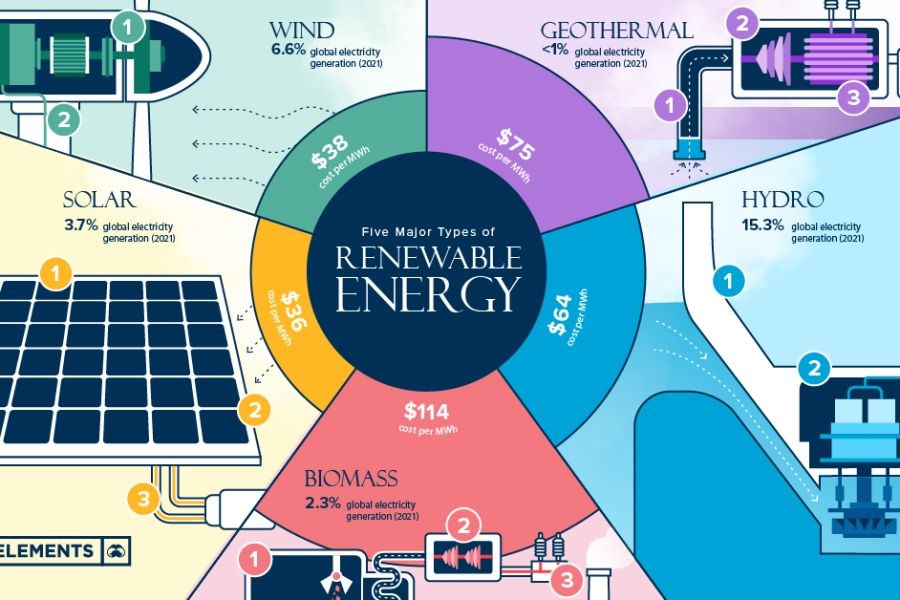New Zealand's diverse agricultural exports have long served as a cornerstone of its economy. These exports not only generate significant revenue but also establish New Zealand as a key player in the global agricultural market. The impact of agriculture on the economy is profound, influencing everything from job creation to international trade policies. This article delves into the historical evolution of New Zealand's agricultural exports, presents a data-driven report on their economic impact, and provides insights into future trends.
Historical Evolution of New Zealand's Agricultural Exports
New Zealand's journey as an agricultural powerhouse began in the 19th century with its booming wool industry. The introduction of refrigeration technology in the late 1800s revolutionized meat and dairy exports, allowing New Zealand to reach markets as far away as Europe. This innovation laid the foundation for New Zealand's modern agricultural economy, which now exports a diverse range of products including dairy, meat, fruit, and wine.
The government has played a supportive role in this evolution by establishing trade agreements and investing in agricultural research and development. Policies like the Closer Economic Relations agreement with Australia have facilitated trade, while initiatives like the Sustainable Food and Fibre Futures fund aim to promote innovation in the sector.
Data-Driven Insights: The Economic Impact of Agricultural Exports
New Zealand's agricultural exports contribute significantly to its GDP. According to Stats NZ, the agricultural sector accounted for over 10% of the country's GDP in 2022. Dairy remains the top export, with products like cheese and milk powder generating billions in revenue. In fact, the Ministry for Primary Industries reported that dairy exports alone were valued at NZD 20.6 billion in 2022.
The meat industry also plays a crucial role, with lamb and beef exports reaching NZD 9.2 billion in the same year. Meanwhile, the horticultural sector is rapidly growing, with kiwifruit and wine emerging as key exports. New Zealand's wine industry, for example, has experienced a 7% increase in export value annually, according to New Zealand Winegrowers.
Real-World Case Study: Zespri's Global Kiwifruit Success
Case Study: Zespri – Overcoming Export Challenges
Problem:
Zespri, New Zealand’s leading kiwifruit exporter, faced challenges in maintaining a consistent supply chain and managing international market demand fluctuations, particularly in China.
Action:
Zespri invested in supply chain optimization and leveraged data analytics to better forecast demand. They also diversified their export markets to reduce dependency on any single region.
Result:
Within two years, Zespri increased its market share in Asia by 15% and achieved a 20% increase in overall export revenue. Their strategic diversification mitigated risks associated with market volatility.
Takeaway:
This case highlights the importance of supply chain agility and market diversification. New Zealand businesses can learn from Zespri's approach to managing global demand and reducing market dependency.
Pros and Cons of New Zealand's Agricultural Economy
Pros:
- Economic Stability: Agricultural exports offer a steady revenue stream, contributing to national economic stability.
- Job Creation: The sector provides employment opportunities, supporting rural communities.
- Global Reputation: New Zealand's commitment to high-quality, sustainable products enhances its global reputation.
Cons:
- Environmental Concerns: Intensive farming practices contribute to environmental degradation.
- Market Dependence: Heavy reliance on a few key markets, such as China, poses economic risks.
- Climate Vulnerability: The sector is vulnerable to climate change impacts, affecting crop yields.
Contrasting Viewpoints: Economic vs. Environmental Priorities
The agricultural sector in New Zealand is often at the center of debates between economic growth and environmental sustainability. On one hand, the economic benefits of agricultural exports are undeniable, supporting GDP and sustaining jobs. However, critics argue that the environmental costs, such as water pollution and greenhouse gas emissions, are too high.
Advocates for economic growth emphasize the need for continued investment in agricultural technology to enhance productivity and sustainability. Conversely, environmentalists call for stricter regulations and a shift towards regenerative farming practices to mitigate environmental impacts.
Finding a middle ground is essential. Policies that incentivize sustainable practices and support farmers in transitioning to eco-friendly methods could balance these priorities, ensuring long-term economic and environmental health.
Common Myths and Mistakes in Agricultural Exports
Myth: "Dairy is the only profitable agricultural export for New Zealand."
Reality: While dairy is significant, sectors like horticulture and wine are rapidly growing, contributing substantial revenue.
Myth: "All agricultural exports are environmentally harmful."
Reality: Many New Zealand exporters are adopting sustainable practices, reducing their environmental footprint.
Myth: "New Zealand's agricultural exports are unaffected by global trade policies."
Reality: International tariffs and trade agreements heavily influence export markets and pricing.
Future Trends and Predictions for New Zealand's Agricultural Exports
By 2030, New Zealand's agricultural sector is expected to undergo significant transformations driven by technological advancements and shifting consumer preferences. According to a report by the Ministry for Primary Industries, the adoption of precision agriculture technologies could increase productivity by up to 25%, reducing resource use and environmental impact.
Furthermore, the growing demand for plant-based products presents opportunities for diversification. New Zealand's expertise in high-quality food production positions it well to capitalize on these trends, potentially expanding its market share in alternative protein exports.
Final Takeaways
- New Zealand's agricultural exports remain a vital economic driver, contributing significantly to GDP and employment.
- Balancing economic and environmental priorities is crucial for sustainable growth.
- Technological innovation and market diversification are key strategies for future success.
- Businesses should consider integrating sustainable practices to capitalize on global demand for eco-friendly products.
As New Zealand navigates the complexities of global trade, its agricultural sector will continue to play a pivotal role in shaping the economy. By embracing innovation and sustainability, New Zealand can maintain its competitive edge in the global market.
People Also Ask (FAQ)
How do agricultural exports impact New Zealand's economy?
Agricultural exports contribute over 10% to New Zealand's GDP, supporting jobs and trade surplus (Stats NZ).
What challenges do NZ agricultural exporters face?
Key challenges include market dependency, climate change impacts, and evolving international trade policies.
How can New Zealand balance economic growth with environmental sustainability?
Implementing technology-driven, sustainable farming practices can enhance productivity while reducing environmental impact.
Related Search Queries
- New Zealand agricultural exports 2025
- Impact of global trade on NZ economy
- Sustainable farming practices in NZ
- Future of NZ dairy industry
- New Zealand horticulture market trends






























kieramaddox435
7 days ago